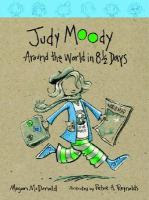Guiding children to appropriate reading material is a task
most parents heartily participate in. We
librarians are equally interested in assisting young people in finding books
that are readable, yet challenging and will provide a quality reading
experience. Educators have attempted to
systematize the learning to read process through different gradient
systems. Adult panels come up with
“nominee” lists for children to read and vote on, create grade level lists, and
request book suggestions which tie-in to school wide assignments and
promotions. Our Children’s Library cooperates
fully with schools by labeling and housing together books which have been
leveled, numbered, nominated or required as part of a summer reading
assignment. Currently we have shelves of books according to Guided Reading
Level,
Monarch,
Bluestem, and
Rebecca Caudill nominees, and
District67’s Character Traits books. We have lists of suggested books by grade and easy access to the
Lexile level of most
books, including a list of high level (over 1000) books for young readers. Parents and students can take advantage of
these pinpointed reading materials by knowing the student’s Guided Reading Level letter, or Lexile number. Is there a summer reading assignment tucked
in your child’s backpack? Don’t wait
until the last few days before school starts to begin. The book you want may be unavailable!
But to paraphrase, if you label it , will they read it? Learning to read is an individual process
that can occur in leaps and bounds, or plateaus. Telling a child to read only books which
correspond to his or her tested number or letter can stagnate progression. The systems themselves operate on algorithms
which sometimes give confusing or misleading results.
Simple picture books, easy readers and
chapter books may all share the same Guided Reading letter. Children who have tested at a high Lexile
level are discouraged from reading “easy” books, even though the subject matter
appeals to their age group. Most
importantly, children may be discouraged from exploring a wide range of
books. The best motivation for improving
reading skills is interest in the book itself.
Do we only want children to read the books that have been deemed “the
best” by adults,
or correspond to their grade? I would like to see levels and
lists used as a starting point, not to pinpoint.




No comments:
Post a Comment